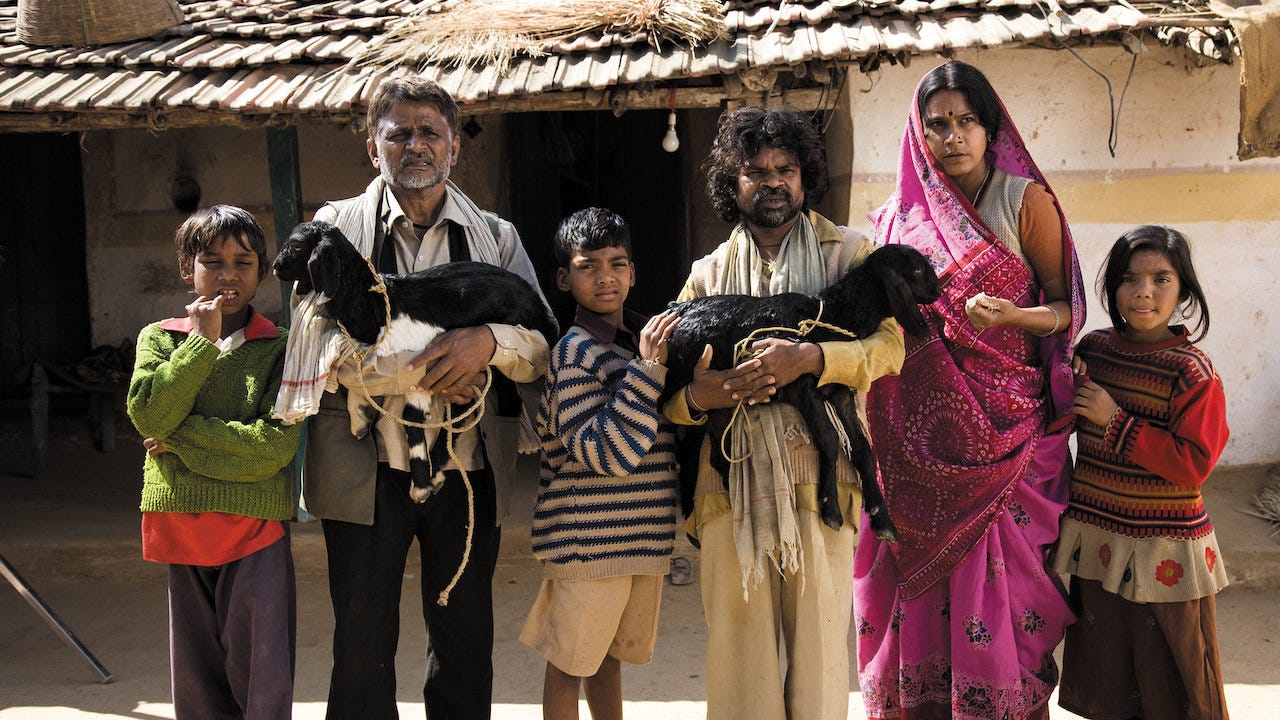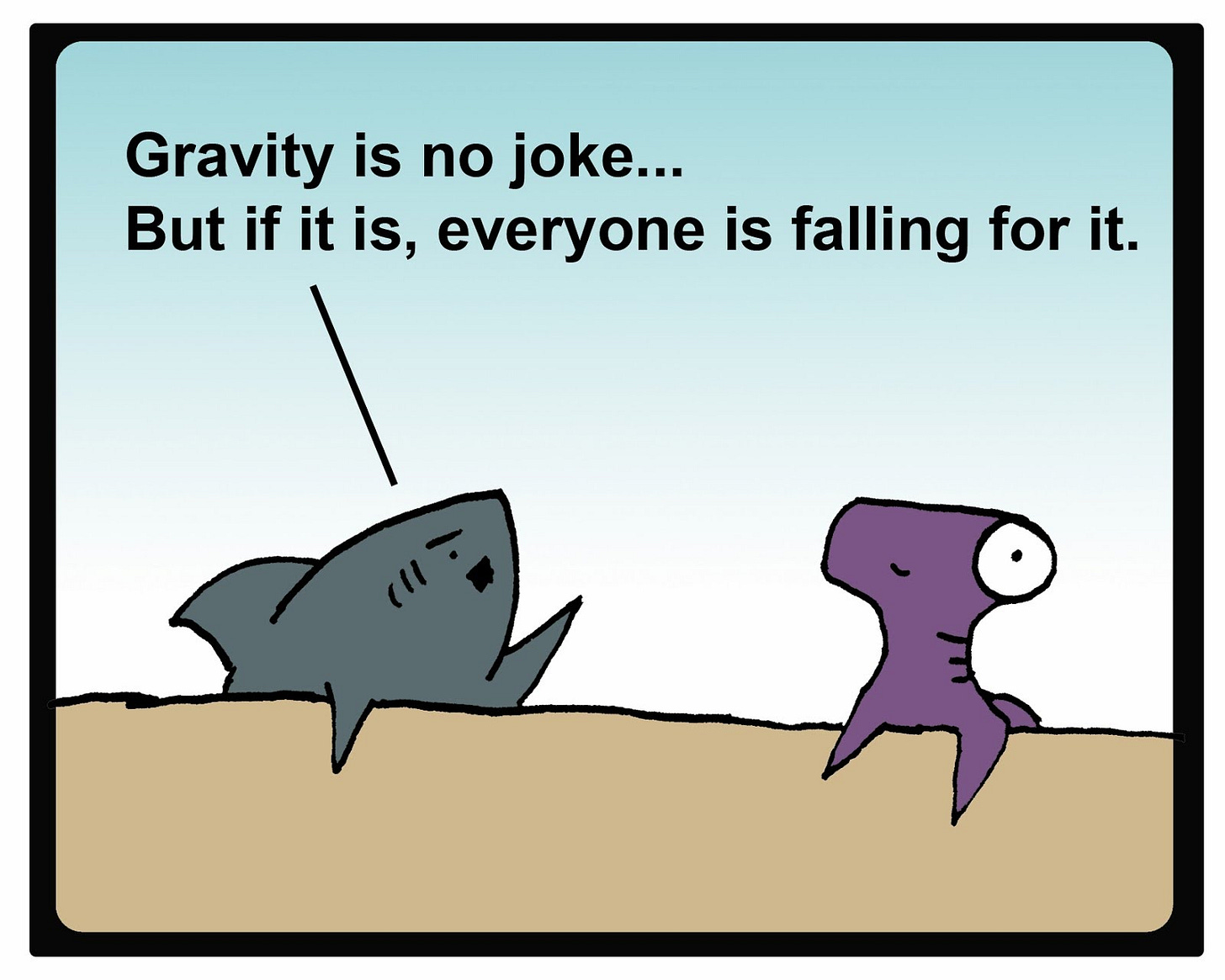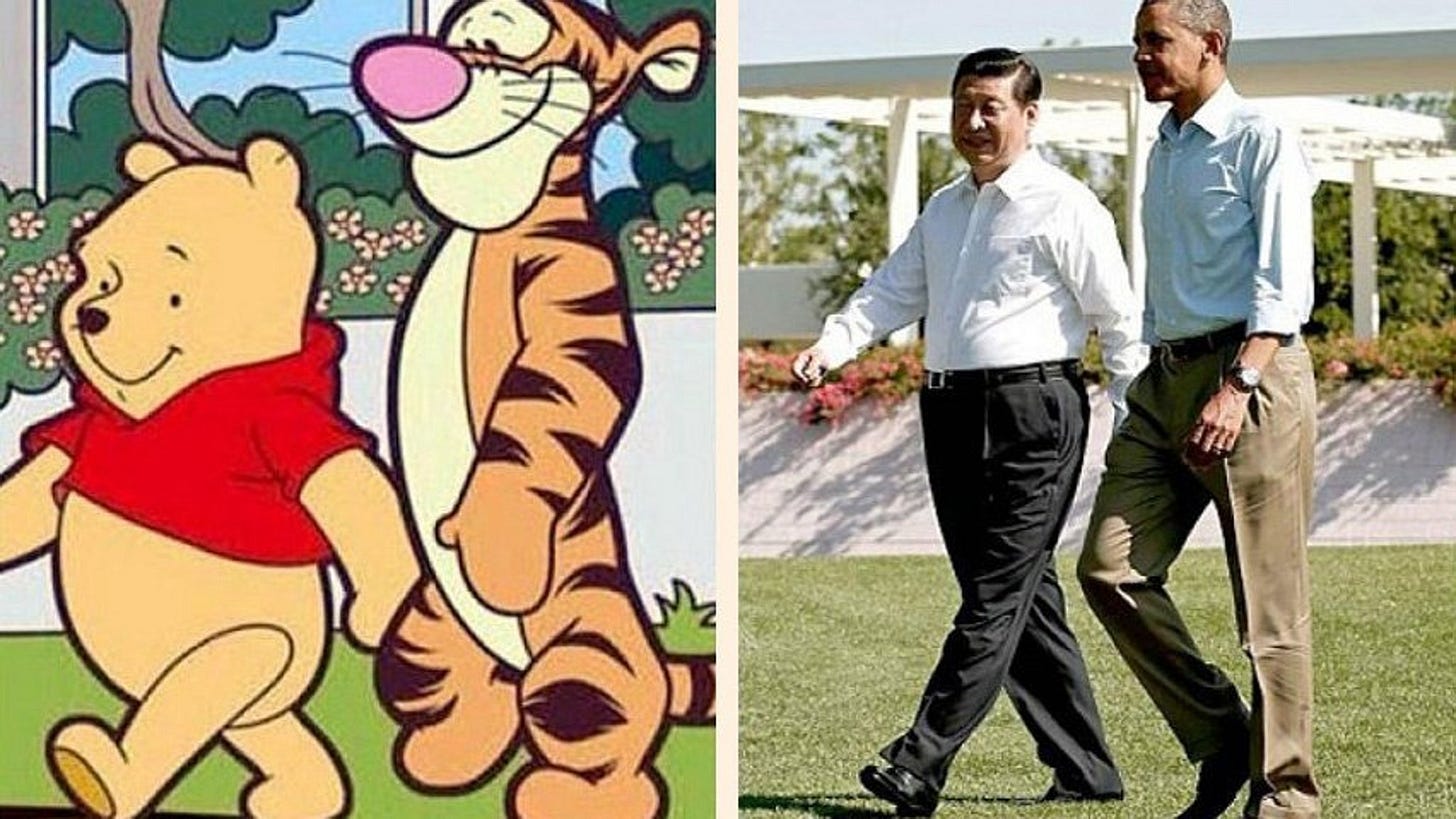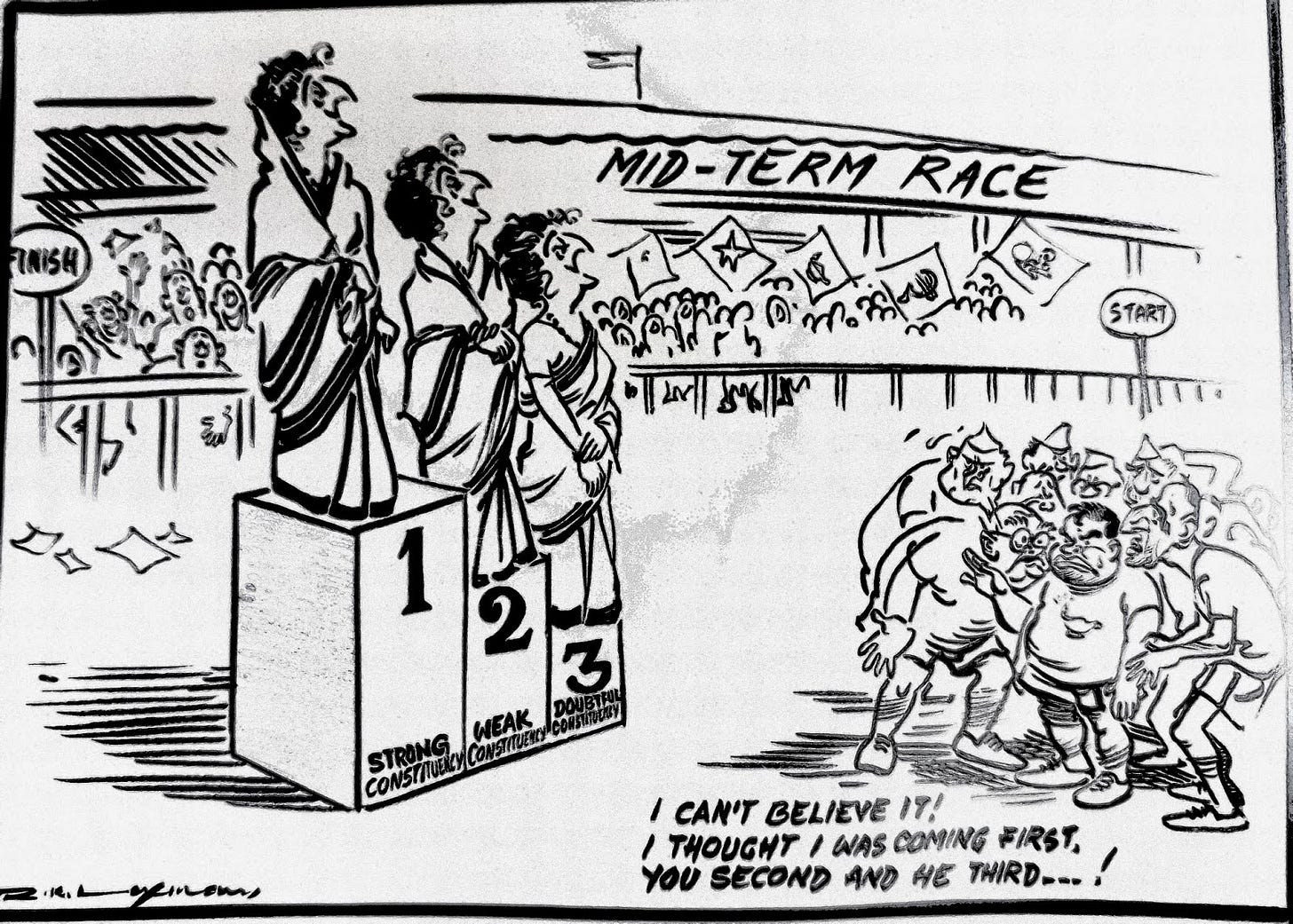👋 Hey there! My name is Abhishek. Welcome to a new edition of The Sunday Wisdom! This is the best way to learn new things with the least amount of effort.
It’s a collection of weekly explorations and inquiries into many curiosities, such as business, human nature, society, and life’s big questions. My primary goal is to give you some new perspective to think about things.
I’m a bad runner. The maximum I can go without getting out of breath is one kilometre. I’ve been maintaining a daily streak for the last couple of weeks. The endorphins released make me feel light — both in mind and in body. It’s a feeling I crave every day! Also, as I discussed in my previous essay, breaking daily sweat is crucial in keeping the cortisol levels down. In other words, if you run every day, stress remains at bay.
But something funny happened last Tuesday night. I had a pretty good day at work. I cracked a big problem and got some appreciation from peers. It was a good feeling — a good boost in serotonin (apart from the obvious dopamine hit). When I went for a run the next day, I had an inherent feeling that I’m gonna outdo myself easily.
I also happened to have a pretty good morning that day. I crushed my daily Duolingo French lessons (with a daily score well over 200 without a single mistake). For a native French, it would be nothing, but for a guy like me, for whom French is the fourth language, it was a pretty good personal feat. I not only felt confident but also energetic.
So, by the power of French lessons and office work, I ran close to one-and-half kilometres that day — fifty-percent more than my usual distance. All powered by serotonin, dopamine, and endorphins (apart from food and water).
When you feel confident, you feel confident. There’s no denying it.
Even though there was no difference between what I drank and ate, on Wednesday, Feb 23rd, my energy level was also fuelled by confidence.
If you have serotonin, you have confidence. Therefore it’s very important to focus on small wins, small achievements, small feats. The little (but more frequent) doses of dopamine and serotonin push you higher. Success begets success. Or, more precisely, small success begets big success.
Enough talk. On to this week’s essay!
Note: If you find this issue valuable, can you do me a favour and click the little grey heart below my name (above)? It helps get the word out about this budding newsletter. 😍
Q: What can we learn from satire?
Today, let’s talk about satire. Simply put, satire is a humorous way of poking fun at the powers that be. Sometimes, it is created with the goal to drive social change. But often it is a tool for the frustrated to vent, for the voiceless to be heard, for the powerless to take back (some) power — while also having some fun in the process.
In the movie Peepli Live, we meet Natha and his family who hail from Peepli, a small village in the fictional state of Mukhya Pradesh, India. They are in a dire situation. The whole family is famished (because the brothers don’t work and loaf around) and on top of that the banks are demanding repayment of loans or else the family will be stripped of their land and house.
To avoid this impending doom, Natha decides to commit suicide after consulting with the local headman who suggests this is the best way to not only get the loan money waived off, but also receive a heavy compensation from the government.
Word gets out and soon the news media and local politicians — anybody and everybody who has a dog in the fight — gets involved in the matter, and the relatively unknown village of Peepli starts being broadcasted live on TV.
Peepli Live is one of the finest works of satire that have come out of Bollywood. All the characters are extreme stereotypes. All the events are heavily exaggerated. Everything is designed to poke fun at the media’s and politicians’ response to the rising cases of farmer suicides in India.
Phoney politics, faux religious practices, anything “powerful” with a trait of either being fraud or taking itself too seriously is a target of satire. We cannot change them, so we mock them!
I’ve always been a fan of satire (especially the cartoons of the great R. K. Laxman) because they expose how ludicrous or comical things really are. Like a sharp razor, satire cuts through bullshit and exposes falsehood.
Now get this. Satire isn’t limited only to political and religious matters. Take the Dilbert comic strip or the TV series The Office, for example. Both poke fun at the workplace.
Now, the big question is this: why do we feel agitated when the mockery is on our religion, philosophical views, political ideologies, but we laugh it off when the joke is on other matters?
More precisely, why couldn’t we couldn’t care less if the joke is on an “already established fact” such as gravity or the roundness of earth but lose our temper if godforbid somebody says something about our god, guru, nation, religion?
Is it because these ideas aren’t strong enough to feel the brunt of ridicule? Then what’s the point in holding such brittle beliefs in the first place?
I’ve previously argued that truth has no concern for feelings. Truth is ruthless. In today’s essay, I argue that truth can stand ridicule and mockery. In fact, the real test of the strength of an idea is how much mockery and ridicule it can tolerate before breaking.
How much truth is contained in something can be determined by making it thoroughly laughable and then watching to see how much joking around it can take. Truth is a matter that can stand mockery. In fact, truth is strengthened by any ironic gesture directed at it. Whatever cannot stand satire is false.
Take the following joke. Had it been “democracy” (or Hinduism, Islam, Christianity) instead of “gravity” it would have raised a bunch of eyebrows for “making fun of” or “disrespecting” an ideology. To that, my question is this. Is democracy really so fragile that it cannot take a joke? Or is it our “feelings”?
To illustrate my point — how mockery makes the truth stronger — let me give you two real life examples.
When Xi Jinping, the president of China, visited the US for an official visit in 2013, this meme became wildly popular on the internet and ‘Pooh’ became a common nickname for Xi Jinping.
On top of that, in the next year, the following meme of Xi Jinping and Japanese prime minister Shinzo Abe gave the internet a field day.
The following yet another such meme had the world laughing out loud, apart from all the other thousands of memes created by the internet community.
What did China (Xi Jinping) do to deal with this? Threatened by Xi Jinping’s likeness to Winnie the Pooh, China decided to kick the adorable bear out of China. Winnie the Pooh, with its movies, TV series, and stuffed toys, is completely banned in China.
Nobody is allowed to talk about Pooh in China. Try searching for ‘Winnie’ on Chinese microblog Sina Weibo and it says some results have been “omitted”. Mind you, Pooh is only a fictional character, not even a “real” threat.
Now, what’s the outcome of all these fuss? Every time the Chinese president is in the news, Winnie the Pooh starts trending on Twitter.
Now, let’s take the opposite example. The Netflix series House of Cards (2013) is set in Washington, D.C. and is the story of Frank Underwood, an amoral politician and Democrat. When Frank is passed over for appointment as Secretary of State, he initiates an elaborate plan to attain power, and ultimately becomes the president. He is highly pragmatic, dangerously cunning, and extremely ruthless.
Interestingly, Barack Obama (also a Democrat) was in power when House of Cards first aired. How did he deal with it? Did he become insecure, scared, and started living in fear that people would compare Frank Underwood with him, and his approval ratings would go down? The answer is clear in this YouTube clip.
There’s after all some truth in the saying, “If you find it funny, it’s a joke. If you find it offensive, it’s the truth.” If you can take a joke, you have nothing to hide. If you find it offensive, there’s some truth in it. Obama isn’t anything like Frank Underwood, but Xi Jinping does look like Winnie the Pooh (fat and portly), and he was well aware of it. His fragile ego was hurt when others made fun of it.
This is precisely why totalitarian rulers have always outlawed satire directed at them and their ideologies. If their facade gets shattered by ridicule, they may lose control and democracy would take over. Who wants that? Not China for sure.
If an idea is truthful, it is antifragile. This means it should be capable of withstanding ironic, satirical, and sarcastic attacks, and shouldn’t be bothered by mockery. If it’s too brittle to face ridicule, it’s weak at best and false at worst.
Satire destroys falsehood.
We need satire. It’s a tool to test the truth and challenge established norms. It’s a weapon to destroy falsehood. It’s also a sign that we are living in a free society.
During The Emergency in India (1975 to 1977), the media was heavily censored. So was R K Laxman’s cartoons. By definition, India during the emergency (under Indira Gandhi) wasn’t a free society.
Laxman, not being able to do what he does, had to temporarily retire and leave the country for a while.
A free society does not recoil at the power of satire. A free society recognises that all beliefs and ideologies are fair game. At the same time, a free society also recognises that criticism, mockery, ridicule of all prophets, ideas, religions, and ideologies is fair game as well.
Ideas must stand the test of ridicule. If they cannot, they are too flimsy and should be discarded. All ideologies, religious views, political philosophies have to be challenged in order to see how much truth there’s in it. Truth must be ridiculed.
Timeless Insight
Life is not a game of poker. Unlike a game of poker that has a fixed set of cards known to all parties involved, in life an unknown card can pop-up at any point randomly.
Interesting Finds
The life we’ll be living 10 years from now will largely be determined not by our past selves but by our present and future selves. If we imagine what we might regret down the road, it’s very much in our hands to do something about it now. This is the good news about being a human. The time we have left with family and friends is not a law of nature like the weeks we have left to live. It’s a function of priorities and decisions.
this is why the future, be it NFTs or Memoji or the howling existential horror of the Metaverse, looks so ugly and boring. It reflects the stunted inner lives of the finance and technology professionals who produced it. As the visual manifestation of cryptocurrency, NFT art combines the nuanced social awareness of computer programmers with the soulful whimsy of hedge fund managers. It is art for people whose imaginations have been absolutely captured by a new kind of money you can do on the computer.
What I’m Reading
In general, people are not drawn to perfection in others. People are drawn to shared interests, shared problems, and an individual's life energy. Humans connect with humans. Hiding one's humanity and trying to project an image of perfection makes a person vague, slippery, lifeless, and uninteresting.
— Robert A. Glover, No More Mr. Nice Guy
Tiny Thought
The most important step in becoming successful in anything is to first become interested in it.
Before You Go…
Thanks so much for reading! Send me ideas, questions, your favourite satire. You can write to abhishek@coffeeandjunk.com, reply to this email, or use the comments.
Until next Sunday,
Abhishek 👋









